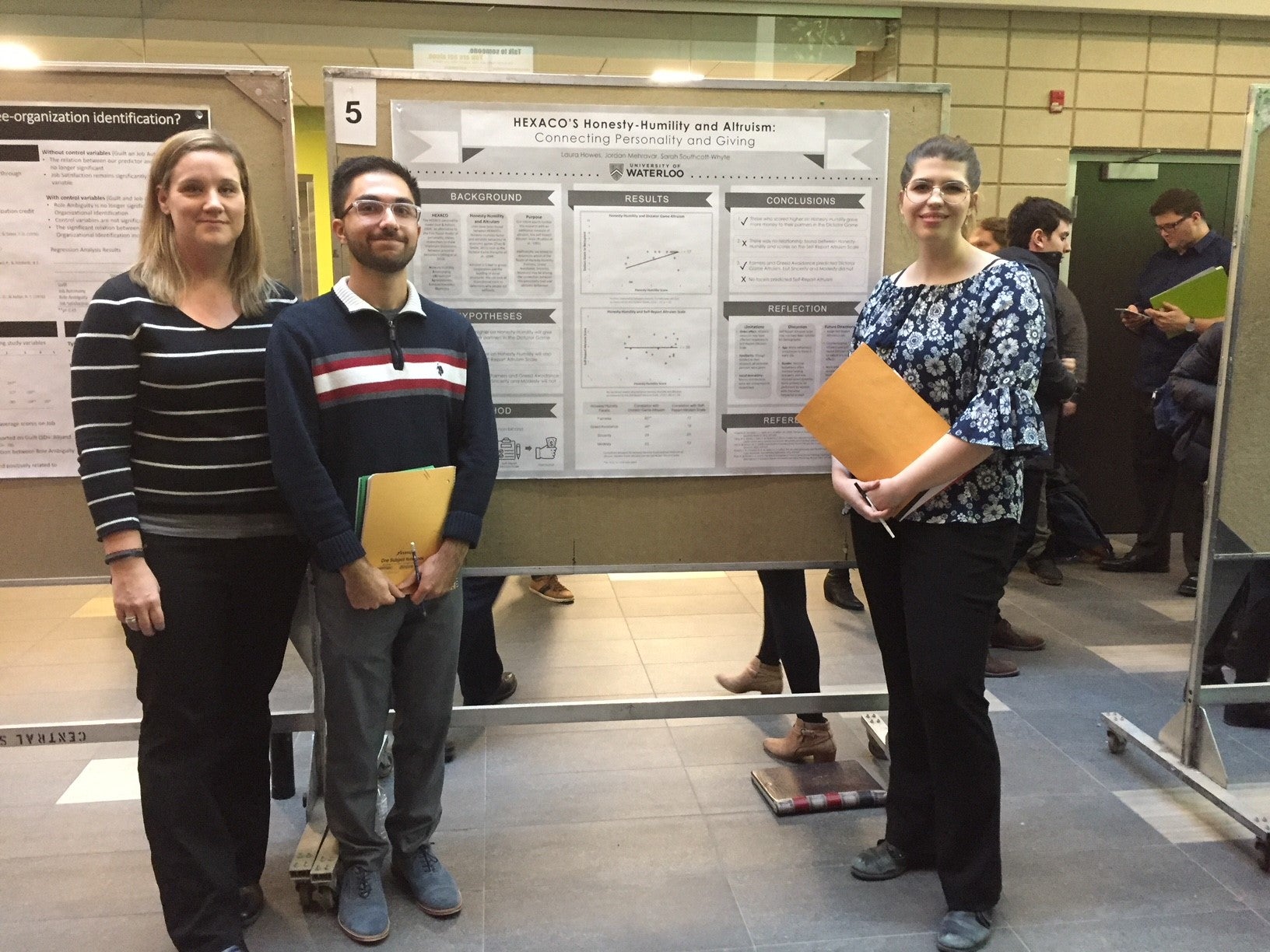Undergraduate Poster Fair Highlights Student Research
Senior undergraduate students in Psychology presented their work on Friday November 30 in the EV3 Atrium.

Undergraduate presenters: Jordan Mehravar, Laura Howes, and Sarah Southcott-Whyte
Senior undergraduate students in Psychology presented their work on Friday November 30 in the EV3 Atrium.

Undergraduate presenters: Jordan Mehravar, Laura Howes, and Sarah Southcott-Whyte
Dr. Fernandes's research on the effects of drawing on memory, especially in older adults, is featured in The British Psychological Society Research Digest.
The University of Waterloo was one of the first in Canada to have its own in-house training facility for their clinical psychology PhD program. Today, the Centre for Mental Health Research and Treatment celebrates 10 years of excellence in research, practice and treatment services on campus and in the regional community.
Read more about the work being done by the International Tobacco Control Policy Evaluation Project, headed by Dr. Geoff Fong.
UW Psychology's Geoff Fong is one of the featured speakers at the CIHR Trailblazer Awards will be presented on September 24, 2018 at York University. The awards support early-, mid- and senior-career researchers who continue to make exceptional contributions that promote population and public health for Canadians and citizens around the world through evidenced-based health policies as well as interventions.
For the second time in a few years, this Department has a research team that has won the Ig Nobel! This time it’s Lindie Liang, Doug Brown, Huiwen Lian, Samuel Hanig, Lance Ferris, and Lisa Keeping in the I/O Area. The Ig Nobel awards celebrate work that “first makes people laugh, and then makes them think”. You can read all about it at The Guardian.
Companies should avoid scheduling important work tasks immediately following an election, according to a study from the University of Waterloo.
Researchers discovered the outcome of a U.S. presidential election can affect employees’ engagement and performance at work — if they voted for the losing side. Although experts have long known that ongoing family issues and other stresses can affect the workplace, less is known about the effect of more discrete events.
The Selection Committee for the 2018 Alton Ochsner Award Relating Tobacco Smoking and Diseases is pleased to present its 33rd Annual Award to Professor Geoffrey T. Fong, Ph.D. Professor of Psychology and Public Health Systems, University of Waterloo, Waterloo, Canada, and to Eric A.
In the just-released list of "Highly Cited Researchers" for 2018, there are 5 University of Waterloo faculty members. The list is comprised of those researchers who have published the greatest number of highly cited scientific articles in their respective fields (the number of scientific articles that are ranked in the top 1% of articles in the field). This is a well-respected and recognized list; Clarivate runs Web of Science, citation indexes, etc.
Here are the 5 University of Waterloo researchers on the 2018 list:
It is my privilege to serve as Chair of the Department of Psychology here at the University of Waterloo. Psychology at UW is home to over 40 exceptional professors, all of whom are dedicated to outstanding teaching and world class research. We also have over 120 terrific graduate students pursuing MA and PhD degrees. And we have an amazing staff devoted to all of our students, undergraduate and graduate.